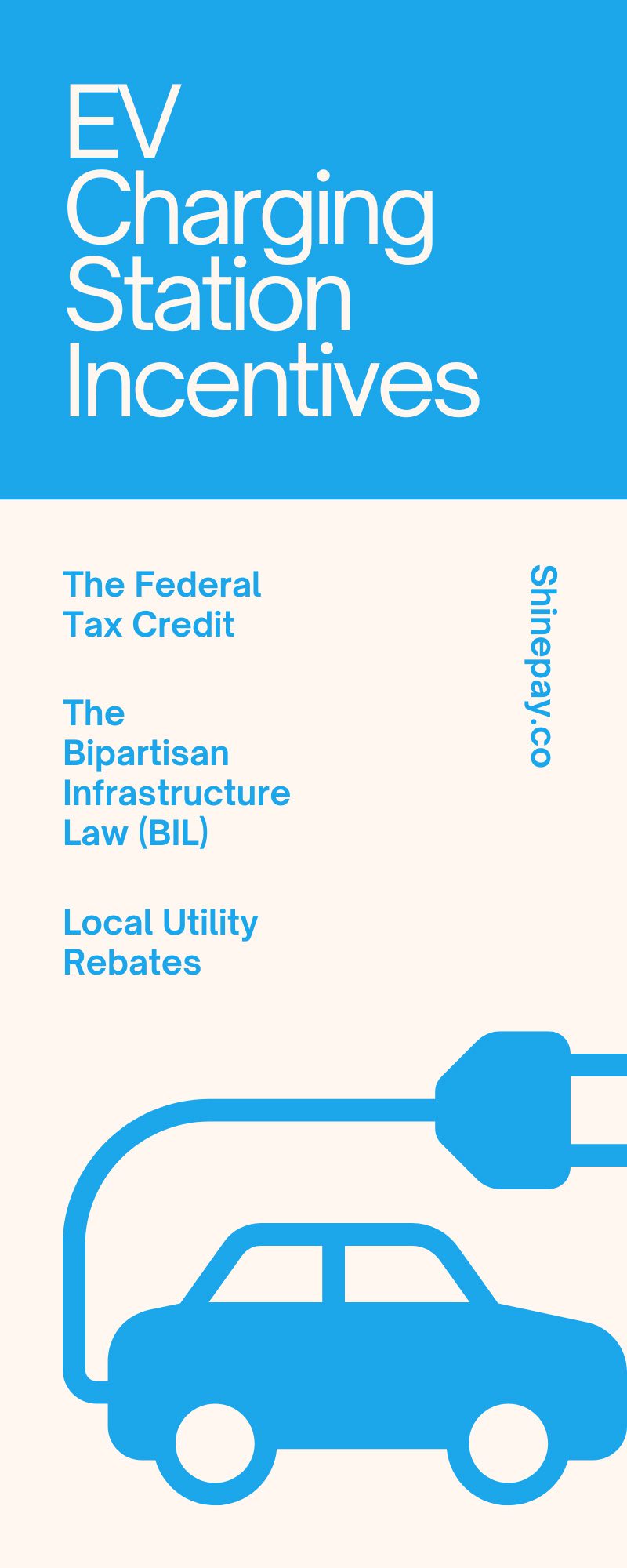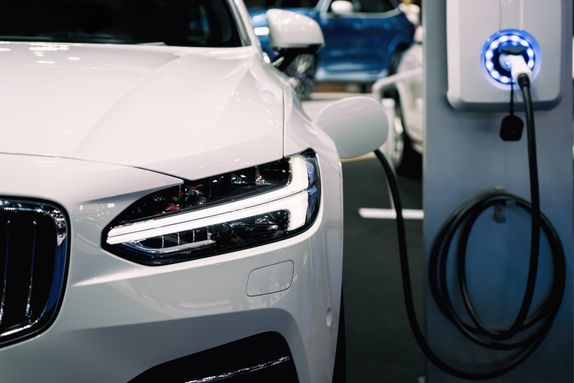Green fuels and the vehicles that use them have been growing in popularity over the last few years, driven by multiple factors. Firstly, political conflicts have made oil and gas prices skyrocket, making traditional vehicles more expensive to own. Meanwhile, scientific research continues to show that fossil fuels worsen the effects of global warming, making green fuel alternatives a planet-saving necessity.
Whether your business is deeply concerned with environmental issues or not, there are plenty of reasons to be paying attention to the conversation. Tons of state and local governments are offering incentives to businesses that install electric vehicle (EV) charging stations, and even the Federal government has gotten on board. Read our complete guide to EV charging station incentives to learn more.
How EV Chargers Benefit Businesses
More and more people are purchasing EVs to offset the cost of rising gas prices. As technology has improved, EVs have gained the ability to travel long-distance, making them even more attractive to potential car buyers. This growing popularity, in addition to national and local green initiatives, makes EV charging stations more necessary than ever.
What this means for your business is that installing EV chargers on your property can net you additional customers. EV chargers draw more people to your business—even people who wouldn’t normally visit you. You’ll make money from the EV chargers themselves, plus anyone who wanders into your business while waiting for their car to charge.
Types of EV Charging Station Incentives
There are three main types of EV charging station incentives: tax credits, grants, and rebates. While new incentive programs pop up every few months, here are three of the most important ones to know about.
The Federal Tax Credit
The International Revenue Service (IRS) has renewed the Alternative Fuel Infrastructure Tax Credit, commonly known as the Federal Tax Credit, through the end of 2022. Any business can apply for a tax credit for up to 30% of the cost of purchasing and installing EV chargers, up to $30,000. If your business owns multiple locations, you can apply for the credit at each site.
The 2023 Update
Starting January 1, 2023, new qualifications will go into effect that change how the Federal tax credit for EV charging stations works. Firstly, the limit will rise to $100,000, which is a massive increase. However, businesses may only get up to 6% (instead of 30%) if they fail to meet certain wage and apprenticeship requirements. The new requirements also state that the new EV charging stations must be in low-income census tracts.
The Bipartisan Infrastructure Law (BIL)
This last year, Congress passed the BIL (formally known as the Infrastructure Investment and Jobs Act), which includes a large-scale plan to increase the number of EVs in the country. This sub-section of the law is called the National Electric Vehicle Infrastructure (NEVI) Formula Program. According to NEVI, the federal government is setting aside $7.5 billion to create a national network of at least 500,000 EV charging stations.
NEVI is not a program to which businesses can apply directly. Instead, state governments are responsible for developing infrastructure plans and submitting these for Federal government approval. However, some of these state plans may include partnering with local businesses to incentivize installing EV charging stations.
Around 10% of NEVI’s funds are intended to fund grants that will help fill in any gaps in the national EV network, but the exact details for these grants are not finalized. If you’re a business interested in partnering with local and state governments on this front, you should keep your ears open for more information in the coming year. The Federal Highway Administration is currently approving eligible state plans.
Local Utility Rebates
Aside from the Federal Tax Credit, the most immediate way to take advantage of the need for EV chargers is to see what incentives are available locally. Many municipalities offer rebates to businesses and property owners who install EV charging stations. Most of these incentive programs have tiers, meaning you could get even more money back if you install high-capacity chargers.
For example, Austin Energy has a rebate program offering up to $4,000 or 50% of installation costs if you use an approved Level 2 charging station. You also have to install it at either a business or multifamily property. If you install a DC Fast Charger, the amount offered goes up to $10,000.
Understanding EV Charging Station Levels
There are three levels of EV chargers. Higher levels are capable of delivering faster charging speeds, though exact charging times will depend on the individual vehicle.
- Level 1: 120-volt; charges 3-5 miles per hour
- Level 2: 208-volt to 240-volt; charges 12-80 miles per hour
- Level 3 (also called a DC Fast Charger): 400-volt to 900-volt; charges 3-20 miles per minute
Level 3 chargers offer the fastest charging speeds, but they require too much electric power for private residents to own them. They also cost tens of thousands of dollars, which is why the rebate amounts are usually so much higher for these chargers.
It’s good to note that Tesla calls its Level 3 chargers Superchargers, but they are equivalent to other DC Fast Chargers. However, they don’t work with non-Tesla cars.
How To Add Mobile Payments to Your EV Chargers
It’s no secret that most people who drive EVs are tech-savvy individuals. Often, this demographic of customers prefers simplicity and low-hassle services. To encourage more EV drivers to use your charging stations, consider installing a ShinePay PowerPay device so you can start accepting app-based payments.
One of the many benefits of accepting mobile payments on charging stations for businesses is that it encourages people to visit no matter the circumstance. You can forget your wallet at home and still charge your car, because all you need is your phone. People also feel safer because they don’t have to carry money or cards with them.
ShinePay also has one of the most affordable Level 2 EV chargers on the market, the ShineEV Charger. It comes with a fully-sealed enclosure and an Energy Star certification. Plus, it also works seamlessly with our ShinePay app, so you don’t have to do a thing. Call or email us today to learn how ShineEV can help increase your business traffic.

